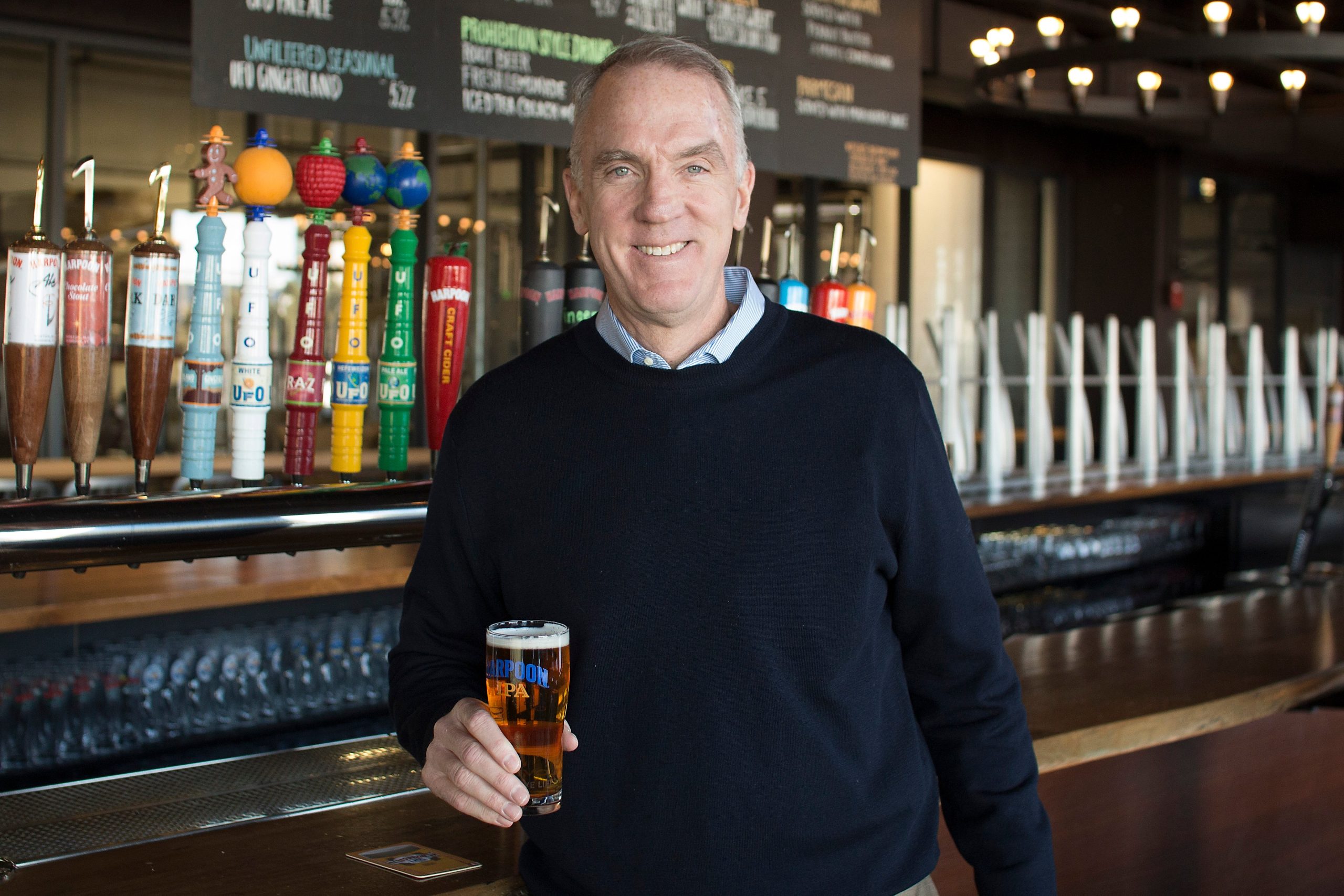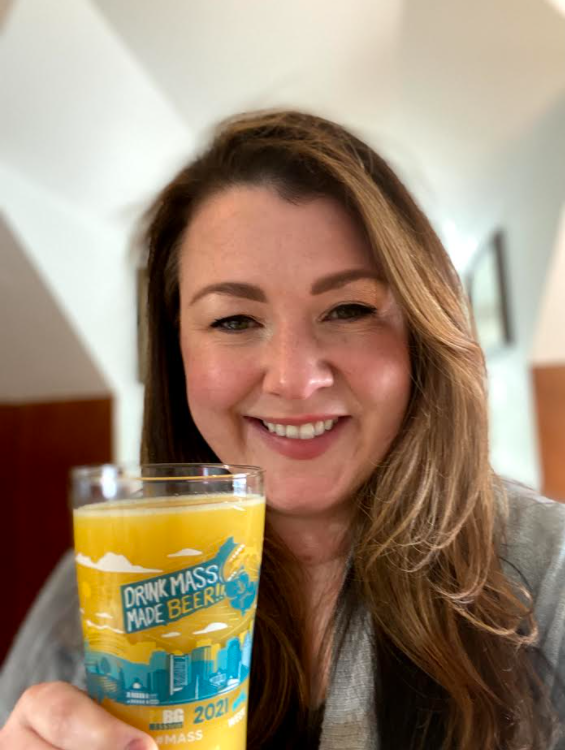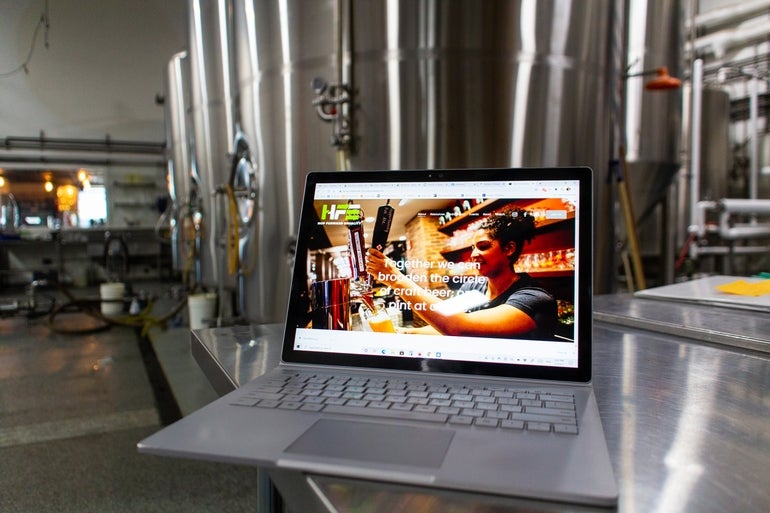Mass. Bay Brewing Co. in Boston — the maker of Harpoon beers — and the Massachusetts Brewers Guild announced in April they were teaming up to launch a new website aimed at providing resources for furthering diversity, equity and inclusion work at Massachusetts breweries. Dubbed HopForwardEquality.com, the resource center builds on a 2019 career fair of the same name. Mass. Bay Brewing Company Co-founder and President Dan Kenary and Brewers Guild Executive Director Katie Stinchon spoke with WBJ about how Hop Forward evolved from a job fair to a resource center, the website’s goals, and related programming on deck for the coming months.

Can you tell me about the 2019 Hop Forward Equality job fair and how that led to HopForwardEqualit.com?
Kenary: We formed a diversity and inclusion committee at May Bay, more commonly known as Harpoon Brewery, about three years ago, and so we’ve been focusing on this issue for quite a while. And one thing that we noted was that we just were not getting the applicants from underrepresented communities to apply for jobs at Mass Bay. So we said, “Okay, we need to change the equation here and try to reach out to underrepresented communities in craft beer and try to get more applicants for jobs.”
I’ve been in the industry since before it was an industry. It was called microbrewing back in the 1980s. I did my first craft brewers conference in 1986, and you’d go to these for years and — Katie knows this, too — it was mostly just a bunch of white dudes in flannel shirts with beards. And that’s just kind of been our industry forever, and we just have a job to do to get the word out and bring more diverse communities into craft beer.
So, we decided they’re not going to come to us necessarily, without us reaching out to them and making sure they feel welcome and they know about us, so let’s have this Hop Forward Equality job fair.

Stinchon: We were going to recreate that model in and regionalize it in different places across the state, but of course, then COVID happened, the dumpster fire year, and no one was hiring. It was impossible to bring together folks for those types of events. But we really didn’t want to lose the momentum we had gained or the partnerships we had begun to form, so we pivoted, just like many businesses did, and channeled our energy into this resource center to hopefully solve the two major problems that I hear from our members in terms of what’s holding them back from taking on diversity and inclusion efforts — resource and money, so the resource center is completely free.
Would you say that the website is more directed at employers or employees?
Stinchon: I would say that it’s both because employees often drive the diversity and inclusion committees within their respective breweries, so I guess it’ll depend on the size of the brewery and who’s running those initiatives.
If you had to outline a goal, or several goals for the website, what would they be?
Stinchon: To hopefully break down any fear or hesitancy to dive into this work. Breweries might be worried that they might make a mistake, or they might think they don’t have the right tools in front of them to take it on. So that’s why we really worked with solid partners here in Massachusetts, to comb through their resources and extract what, hopefully, will work best for each brewery.
Kenary: We want to kind of take the power of our community, if you will, and get the flywheel going on this issue, to increase the outreach, and increase the inclusiveness. So that again, we start to reflect the community better than we do now. And I think we’re looking for tangible results year to year. We recognize, hey, this isn’t going to change overnight, or month to month necessarily, but I’m really hoping that we see an increased diversity in our workforce over the next several years that’s measurable.
In compiling the information for this website and doing the career fair, have you gotten a sense of why the beer industry has been so historically white?
Kenary: It’s also been incredibly historically male. Guys drank more beer than women, historically, maybe that was part of it. And craft beer, as I said, it was started by a bunch of mostly white guys, and that’s just kind of how the industry got started. I hope that we were never deliberately unwelcoming, I don’t know anybody who was, but I just think, probably, we’ve developed a little bit, each of us, in our silos. And instead of reaching out horizontally to other communities, we just kept building on our silo. So I don’t have an answer other than that this is really something that’s nationwide. This is something that the Brewers Association, our national trade group, is really pushing and supporting as well.
Would you mind speaking to what it’s been like getting other people on board?
Stinchon: So, we formed our diversity and inclusion committee about two years ago, and we’ve been posting regular diversity and inclusion workshops and trainings at our conference and weaving that language into our resources and examples into our newsletter on a monthly basis.
We launched a diversity and inclusion success story series on our blog where we were asking our brewers to send to us what they are doing in their breweries that’s successful with the hope to inspire other breweries to look at and think about their blinders, and think about some of the barriers that might exist in their tap rooms that they don’t see on a regular basis, and maybe it would inspire them to make some change.
When we unveiled our website on the 12th to our members, we had a lot of excitement about it, so I’m hoping that we’ll be able to attract a lot of folks to our upcoming training series, get people to post jobs on our jobs board and get more involved in our committee overall, in the work that we’re doing.
Can you speak to the Black Brew Dialogues series that’s going to be happening?
Stinchon: Collin Knight is on our diversity and inclusion committee and he also runs a tour company in Dorchester, Jamaica Plain and Roxbury. We had been talking about ways that we could highlight and amplify diversity and inclusion work in the craft beer culture. And from it launched this show where he will be traveling around to some of the state’s breweries, getting a behind-the-scenes tour, and then sitting down over a beer and having candid conversations about that brewery’s diversity and inclusion efforts, where they’re seeing success, where they’re still struggling.
So there’s a lot of great stories that we hope to highlight across the state and some of the great work that’s happening.
Are you planning any other sorts of events as COVID hopefully winds down?
Stinchon: We’ll have to take the temperature of state guidance to see. We’d love to kick the job fair back up in the fall, start to plan in different regions. We are moving ahead with a virtual training that will just be for CEOs and founders that will be mostly about understanding your biases, asking questions like are you providing enough resources to our team, your HR support to bring in underrepresented groups and see if your staff is adequate trained to retain that talent once they come in.
This fall, we will host a workshop that will specifically be for employees and managers, and that will be about measuring your work, how to keep going, how to stay inspired.
There’s a lot of burnout in the work. People will form their D&I committee, they’ll write their mission statement, they have a ton of great meetings about what they want to do, and then they can kind of get stuck on what their next move should be as a group within their breweries. We hope the workshops we host will keep them inspired and keep them motivated to keep going.
This interview was conducted and edited for length and clarity by WBJ staff writer Monica Busch.

